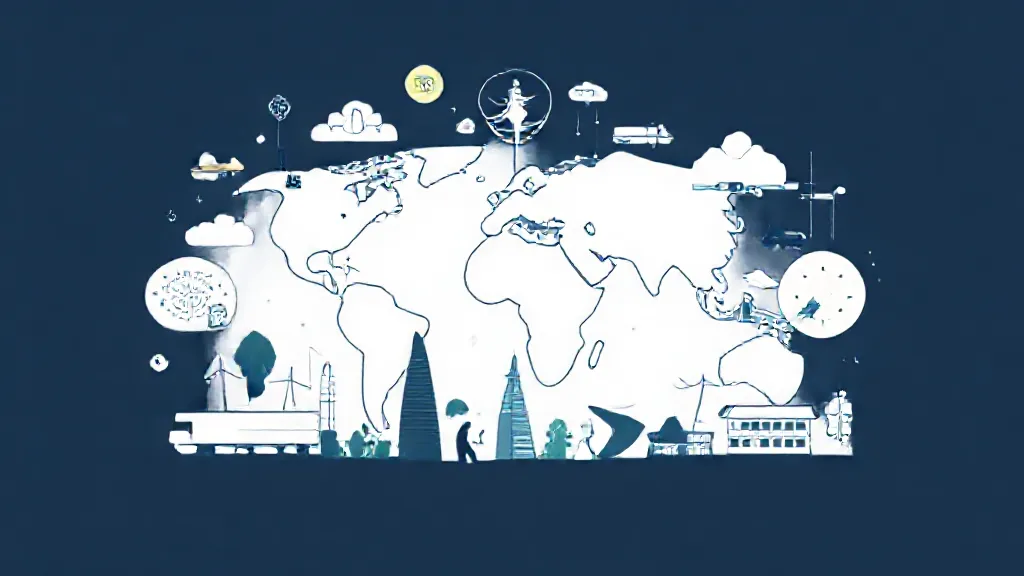Artificial Intelligence (AI) has emerged as a groundbreaking technology with the potential to solve complex real-world problems across numerous sectors. From healthcare to agriculture, AI's ability to analyze vast amounts of data and identify patterns makes it a powerful tool for innovation and efficiency. This article delves into the various domains where AI is making significant strides in addressing pressing global challenges.
Healthcare Innovations through AI
One of the most prominent areas where AI is making a substantial impact is healthcare. Machine learning algorithms are being used to analyze medical data, enabling early diagnosis and personalized treatment plans. For example, AI systems like IBM Watson can process thousands of medical journals and patient records in seconds, assisting doctors in identifying the most effective treatment protocols for cancer patients.
Furthermore, AI-powered diagnostic tools can analyze medical images, such as X-rays and MRIs, with accuracy that sometimes surpasses human radiologists. This capability not only speeds up the diagnostic process but also improves patient outcomes.
AI in Environmental Sustainability
Environmental issues such as climate change, pollution, and resource depletion are critical challenges that AI can help address.
AI technologies are being employed to optimize energy consumption in smart grids, predict weather patterns, and monitor deforestation. For instance, Google’s AI-powered tools analyze satellite images to track changes in forest cover, providing valuable data for conservation efforts. Additionally, AI can enhance renewable energy systems by predicting energy production and consumption patterns, leading to more efficient energy use and reduced carbon footprints.
Transforming Transportation with AI
The transportation sector is undergoing a revolution with the integration of AI technologies. Autonomous vehicles, powered by AI algorithms, promise to reduce traffic accidents and improve traffic flow. Companies like Tesla and Waymo are at the forefront of developing self-driving cars that utilize AI to navigate complex environments safely.
Moreover, AI is being used to optimize public transportation systems by analyzing passenger data and improving route planning, thereby enhancing the overall efficiency of urban mobility.
AI's Role in Agriculture
Agriculture is another field where AI is proving to be invaluable. Precision agriculture, which utilizes AI to analyze soil conditions, weather patterns, and crop health, allows farmers to make data-driven decisions that increase yields and reduce waste.
For example, AI-powered drones can monitor crop health from the sky, detecting issues such as pest infestations or irrigation needs. This technology not only enhances productivity but also promotes sustainable farming practices by minimizing the use of chemicals and resources.
AI and Financial Services
In the financial sector, AI is transforming the way institutions operate and manage risk.
Algorithms can analyze market trends and consumer behavior, allowing for more accurate forecasting and investment strategies. Additionally, AI is being used in fraud detection, where machine learning models can identify unusual patterns in transaction data, alerting banks to potential fraudulent activities in real time. This not only protects consumers but also enhances the overall integrity of financial systems.
Enhancing Education with AI
Education is another domain where AI is making significant contributions. Adaptive learning technologies utilize AI to tailor educational experiences to individual student needs, providing personalized learning paths that enhance comprehension and retention. AI-driven platforms can analyze student performance data to identify areas where learners struggle, enabling educators to intervene more effectively.
This personalized approach not only improves educational outcomes but also fosters a more engaging learning environment.
AI in Disaster Management
AI is also playing a crucial role in disaster management and response. Machine learning algorithms can analyze data from various sources, including social media and satellite imagery, to predict natural disasters such as earthquakes and hurricanes.
This predictive capability allows for better preparedness and response strategies, potentially saving lives and minimizing damage. Additionally, AI can assist in coordinating relief efforts by optimizing resource allocation and logistics in the aftermath of a disaster.
The Future of AI in Solving Global Issues
As AI technology continues to evolve, its potential to solve real-world problems expands.
However, it is essential to approach AI development with ethical considerations in mind, ensuring that these technologies are used responsibly and equitably. Collaboration between governments, private sectors, and academia will be crucial in harnessing AI's full potential to address global challenges. By focusing on inclusive and sustainable AI solutions, we can pave the way for a future where technology serves as a catalyst for positive change.
